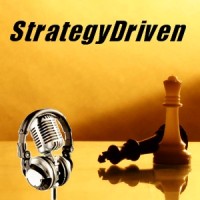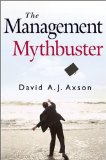StrategyDriven Podcast Special Edition 46 – An Interview with David Axson, author of The Management Mythbuster

Special Edition 46 – An Interview with David Axson, author of The Management Mythbuster explores the common errors made when executing time-honored strategic planning and business management practices and how to avoid these mistakes; subsequently improving management’s effectiveness and the organization’s bottom line. During our discussion, David Axson, author of The Management Mythbuster and President of the Sonax Group, shares with us his insights and illustrative examples regarding:
whether many time-honored business principles need to be changed or the way in which they are implemented needs improvement
- the role of the mission statement and the qualities of a good mission statement
- circumstances when consultants should be hired and the actions managers should take to ensure their consultants add real value
- principles to follow when using forecasts as a planning tool
- how to motivate prudent long-term risk-taking even at the realization of near-term costs
- why there is no such thing as an IT project
- what should be done to enhance the value of financial information such that it creates real, value-adding decision-making information for executives and managers
Additional Information
In addition to the outstanding insights David shares in The Management Mythbuster and this special edition podcast are the resources accessible from his website, www.DavidAxson.com. David’s book, The Management Mythbuster
, can be purchased by clicking here
.
Final Request…
The strength of our community grows with the additional insights brought by our expanding member base. Please consider rating us on iTunes by clicking here. Rating the StrategyDriven Podcast and providing your comments online improves our ranking and helps us attract new listeners which, in turn, helps us grow our community.
Thank you again for listening to the StrategyDriven Podcast!
About the Author

, is President of the Sonax Group, a business advisory firm. He is a former head of corporate planning at Bank of America and was a co-founder of The Hackett Group. He is a sought-after speaker and writer on business strategy and management and is widely regarded as a thought leader in the industry. To read David’s complete biography, click here.
Podcast: Play in new window | Download (Duration: 34:56 — 48.0MB)
Subscribe: RSS


 Stuart L. Hart, author of
Stuart L. Hart, author of